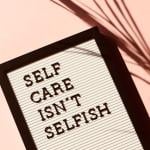Non, je ne regrette rien . . .
(From toothpastefordinner.com)
Now that your hangovers are (hopefully) gone, we’d like to suggest a fascinating read from yesterday’s New York Times (by the writer Benedict Carey) on the psycho-emotional impact of regret.
Below is a taste, but to read the whole piece, click HERE
http://www.youtube.com/watch?v=i_QABS88nDc&rel=1The ideal New Year’s Eve party would come with a psychological voucher, redeemable the next day for a post-mortem session with friends. A chance to relish the night’s humiliations, take bets on who went home with whom, and nominate the guest most in need of therapy, present company included.
An opportunity, that is, to forestall the traditional morning-after descent into self-examination, that lonely echo chamber of what should and could be.
Ghosts roam around down there, after all, and they are the worst kind — alternate versions of oneself. The one who did not quit graduate school, for instance. The one who made the marriage work. Or stuck with singing, playwriting or painting and made a career of it.
Lost possible selves, some psychologists call them. Others are more blunt: the person you could have been.
Over the past decade and a half, psychologists have studied how regrets — large and small, recent and distant — affect people’s mental well-being. They have shown, convincingly though not surprisingly, that ruminating on paths not taken is an emotionally corrosive exercise. The common wisdom about regret — that what hurts the most is not what you did but what you didn’t do — also appears to be true, at least in the long run.















